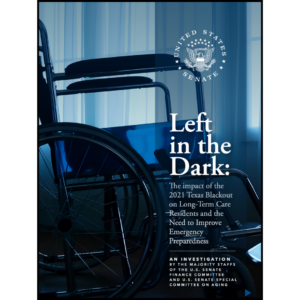What Senior Care Communities Need to Know About the Risks of Hurricane Evacuations
As hurricane frequency and intensity increases, emergency preparedness and response are of heightened importance in the senior care industry. Assisted living communities and nursing homes, in particular, face significant challenges managing hurricane risks, and the question of whether or not to evacuate can be a difficult one to answer.
A new study examines how evacuation during a hurricane affects assisted living and nursing home residents. It focuses on the challenges poised by Hurricane Irma, which struck Florida in 2017 as a category 3 storm and impacted about 85,000 assisted living residents.
How Evacuation Impacts Residents

Cassandra Hua, PhD, Department of Public Health, University of Massachusetts Lowell
The study, “Evacuation and Health Care Outcomes Among Assisted Living Residents After Hurricane Irma,” was published in April 2024. It examined 25,130 Florida assisted living residents who were exposed to Hurricane Irma and compared the health of residents who were evacuated before the hurricane to residents who sheltered-in-place. The participants were age 65 or older, and the study utilized 2017 Medicare claims data. Of the participants, 3,402 evacuated and 21,728 did not evacuate.
The study examined both 30- and 90-day health outcomes to compare the effects of evacuating and sheltering-in-place. According to the study findings, 30 days after a hurricane, residents who evacuated had a 16% increased risk of emergency department visits, and a 51% greater risk of nursing home stays than residents who sheltered-in-place. Other studies have found similar results among nursing home residents who evacuated.
However, 90 days after the storm, the study found no statistically significant association between evacuation and healthcare outcomes for assisted living residents. There also wasn’t an association between evacuation and mortality. These findings differ from the findings that other studies have identified regarding nursing home patients. The study poses the possibility that assisted living residents stabilize more quickly after a hurricane or may be more resilient than nursing home residents to the consequences of evacuations. This may be due to the fact that higher populations of nursing home residents have dementia and functional impairment, nationally, than assisted living residents.
Cassandra Hua, PhD, Department of Public Health, University of Massachusetts Lowell, is the corresponding author of this study. “Our study team has repeatedly found that evacuation is associated with poor health outcomes in nursing home residents,” she explains. “It was not surprising to me to also see increased risk of emergency department visits and nursing home stays among assisted living residents after Hurricane Irma. I think evacuation is not a one-size-fits-all approach and should not be the default choice during a disaster.”
Based on the study data, evacuation clearly had a negative impact on health outcomes of residents during the initial 30 days. Several factors may account for that impact. “Over 40% of assisted living residents have dementia,” explains Hua. “For these residents, changes in environments and routines can be especially anxiety-provoking, leading to behavioral symptoms that ultimately result in injury. Disruptions in routines can also cause flare-ups of chronic diseases due to missed doses of medications.”
How Senior Care Communities Face Natural Disasters
When faced with a natural disaster, like a hurricane, assisted living facility administrators need to carefully consider whether to evacuate or shelter-in-place. There’s no clear-cut answer, but Hua suggests considering the nature of the disaster and the risk of exposure to the assisted living community. “Assisted living administrators should consider whether there are adequate resources to shelter-in-place such as gasoline for generators, clean drinking water, and access to medications for residents,” she says.
If communities must evacuate, having a thorough evacuation plan can help minimize stress on the residents. “Additionally, assisted living administrators can consider collaborating with their local emergency management officials to help in the planning and response process,” Hua advises.
The study results highlight the impact of evacuation on residents and draw attention to the importance of carefully weighing options and being fully prepared for a natural disaster. “Given the increase in the number and severity of natural disasters due to climate change,” says Hua, “the need for assisted living community administrators to regularly consider their emergency planning procedures is critical.”

Paige Cerulli is a contributing writer to i Advance Senior Care.
Related Articles
Topics: Disaster Preparedness , Facility management , Featured Articles , Leadership , Risk Management












